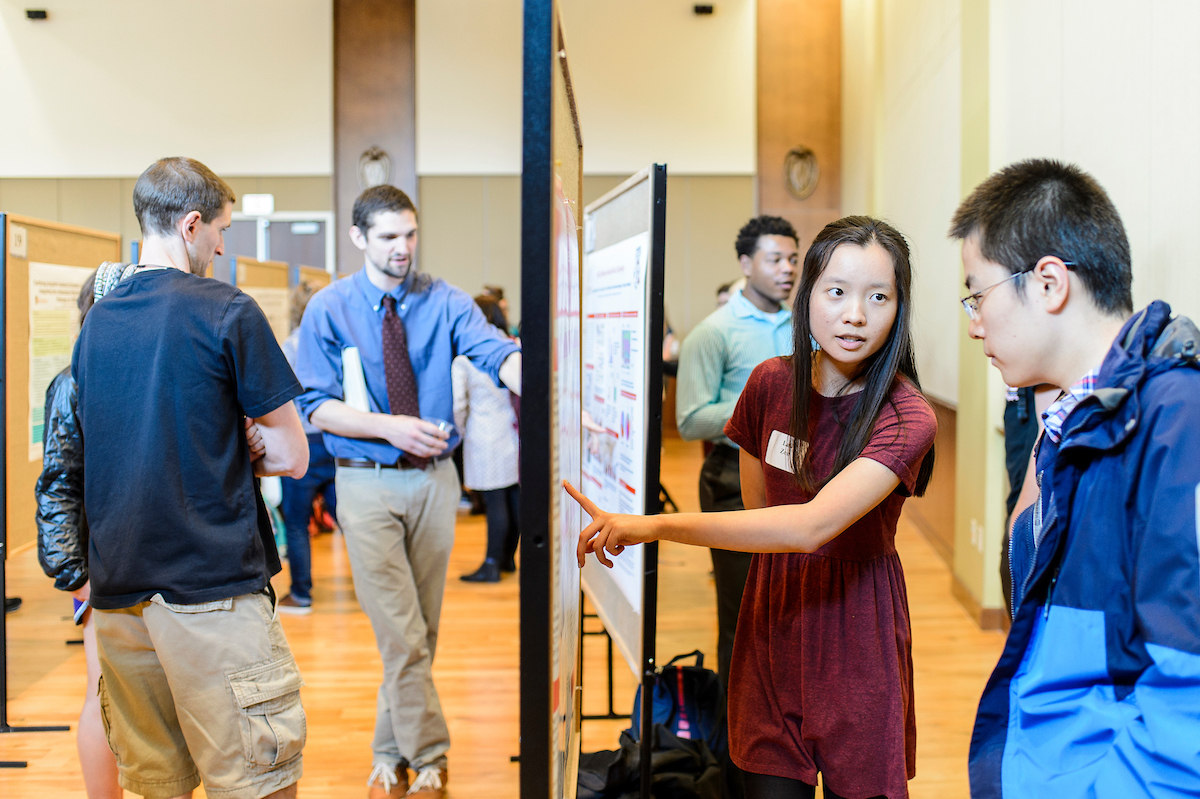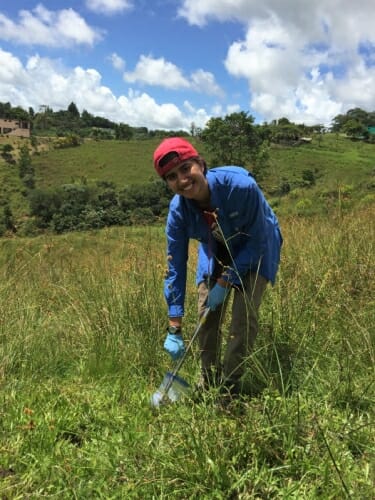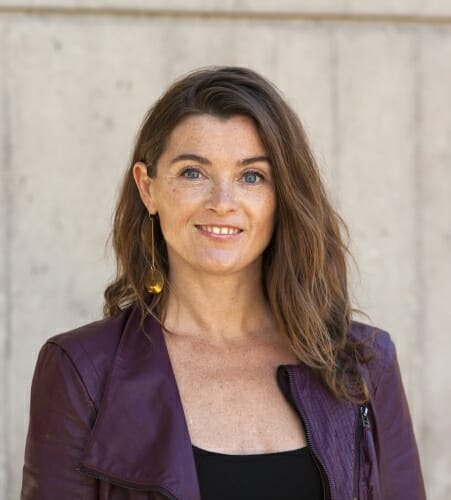Undergraduate Symposium shows value of mentorship

Students present research projects to attendees at the Undergraduate Research Symposium in 2016 The annual event showcases student-led research, creative endeavors and service-learning projects. Photo: Bryce Richter
The annual Undergraduate Symposium is an opportunity for students to show what they’ve learned — think of it as a show-and-tell at the college level. But an important part of that learning has been made possible through students having a strong mentor.
Now in its 20th year, the event takes place Friday, April 13, at Union South and showcases undergraduate creativity, achievement, research, service-learning and community-based research from all areas of study at UW–Madison, including the humanities, fine arts, biological sciences, physical sciences and social sciences. This year nearly 600 students will present, display or perform their work for members of the university, the surrounding community, family, friends and the mentors who have helped them along the way.

Sanober Mirza will be presenting her Senior Honors Thesis at the Undergraduate Symposium, on how tropical forest secondary succession on abandoned pastures influences variation in nitrogen cycling.
Sanober Mirza will be presenting her Senior Honors Thesis work on how tropical forest secondary succession on abandoned pastures influences variation in nitrogen cycling. She has been working with Professor Erika Marin-Spiotta since she began college, working in her lab through the Undergraduate Research Scholars Program.
“She has been the best mentor I could ask for because she has constantly pushed and guided me in the research process, our specific research topics, presentation skills, personal growth, community engagement, and much more,” Mirza says. “She has also encouraged me to ask questions and apply for many competitive grants to fund my own work. She really helped propel me into independent research and has trusted me to work on projects for her while also conducting work of my own.”
In her sophomore year, they came up with a project after Mirza found an interest in how nitrogen processes change throughout succession and how human activities, such as deforestation, can affect them. Marin-Spiotta has expertise in tropical nutrient cycling and biodiversity, so her guidance helped Mirza develop the project and find the right resources.
“I think a lot of discussions about climate change have a focus on carbon cycling. However, I hope one take-away from my presentation is that nitrogen plays an extremely important role in the global climate,” Mirza says. “Since the focus of my work is secondary succession on abandoned pastures, I hope people learn about different ways human activity is affecting nutrient cycling so they can critically think about how actions they take can support more sustainable practices.”
Mirza recently took on a mentor role as a teaching fellow for the Undergraduate Research Scholars Program, which helped her get involved in Marin-Spiotta’s lab in the first place. She’s enjoying the experience and is interested in continuing this role throughout her career, and she plans on mentoring students from underserved communities.
“I think it is critical for a good mentor to really care about both mentorship and their work,” Mirza says. “Forming a connection with a good mentor goes beyond discussing research topics. I think good mentorship comes from support in all forms, whether it is professional, personal, or something else. Also patience is extremely important, as mentorship takes plenty of time.”

Sara McKinnon, an associate professor in communication arts, mentors several students and believes in the power of mentorship.
Sara McKinnon, an associate professor in communication arts, has been working with student MacKenzie Berry for more than two years.
“Each student I mentor is different, each with unique goals, personalities, and visions for their work. As a mentor, I start with trying to get a sense of who the student is, how they work, and where they want to go with their project and personal development,” McKinnon says. “I try to offer my full support, expertise, experience, and connections toward realizing their vision, with their personality, work-style, and background in mind. Mentoring is about relationship-building and seeing students as whole human beings.”
McKinnon knows firsthand the power of mentorship. She has and continues to have many mentors and says she takes the “more is better” approach.
“My mentors have helped me reach important professional milestones, like publishing a first book, and earning tenure. But more importantly, my mentors have taught me how to live well in this world,” McKinnon says. “They are who I turn to in challenging moments of my life, moments when I’m faced with hard decisions, or life-changing circumstances. Their insight is what I use to decide where to go and how to move.”
She hopes that the students she has mentored pay it forward by becoming mentors. Not only to help others but for what they can also learn from the experience.
“I learn about the world and ways of being, through the experiences, projects and visions of my mentors. I would not understand humanity with as much complexity as I do, without the great learning that each of my mentees has taught me,” McKinnon says. “Mentors are an essential part of living well. They are our teachers and counselors in the practice of living fully in this world.”
The Undergraduate Symposium is sponsored by Brittingham Trust and the Office of the Provost, through the stewardship of the General Library System, Chancellor’s and Powers-Knapp Scholarship Programs, Undergraduate Research Scholars Program, WISCIENCE, the Morgridge Center for Public Service, the Writing Center and the Wisconsin Union.



